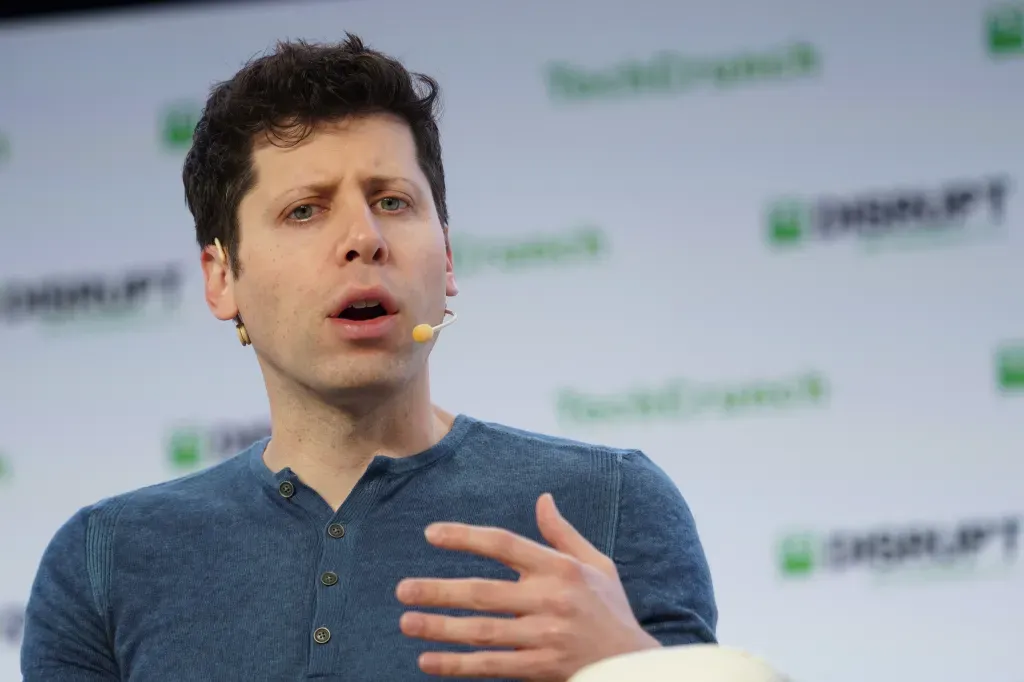Sam Altman Compares AI Boom to the Dot-Com Bubble
-

In an interview with The Verge, OpenAI CEO Sam Altman was asked whether the hype around artificial intelligence could be considered a “bubble.” He drew a direct comparison to the dot-com boom of the 1990s.
“Are we at a stage where investors are generally overvaluing AI? I think yes. Can the emergence of AI also be considered one of the most important events in a very long time? I also think yes.”
— Sam Altman, CEO of OpenAIAltman explained that historically, bubbles tend to form around real innovations. Investors often “get carried away when they see a kernel of truth,” he said. The internet, for example, was transformative, “but people simply got overexcited.”
Still, Altman pointed to what he sees as excesses in the current AI market:
“When three-person AI startups raise money at sky-high valuations — that’s madness.”
According to him, some will lose phenomenal amounts of money, but others — though it’s impossible to predict who — will make fortunes. “I personally believe, though I could be wrong, that overall this will be a huge positive for the economy,” he added.
OpenAI’s Growing Pains
Altman admitted that OpenAI “really messed up a few things” during the rollout of GPT-5, but said the company has “learned the lesson” of what it means to launch a product for “hundreds of millions of people overnight.” He noted that many users actually liked the new model-switching feature, even though the process wasn’t flawless.
“Right now, we’re forced to make terrible compromises. We have more advanced AI models, but we can’t release them to users because we simply don’t have enough capacity.”
Scaling Challenges
Altman highlighted that ChatGPT is already the fifth most-visited website in the world, but scaling further has been limited by a shortage of computing power. To fix this, OpenAI is preparing to invest massive sums into infrastructure:
“In the near future, we’ll correct this — we’re going to spend trillions of dollars building data centers.”
-
Altman’s dot-com comparison feels spot on. Every transformative technology — railroads, the internet, smartphones — has gone through a hype cycle where valuations get way ahead of reality. Yes, three-person AI startups raising at unicorn valuations sounds crazy, but that doesn’t mean AI itself is a bubble. It just means some investors will overpay and get burned, while a handful of companies will emerge as giants that shape the next few decades.
The real takeaway for me is his comment about capacity. The fact that OpenAI literally has models they can’t release because of compute shortages shows how early we still are. If they’re already talking about trillions of dollars for new data centers, it signals AI is going to be not just a software revolution, but a massive hardware and infrastructure boom too. That might actually be where some of the biggest long-term opportunities lie — in the companies providing the chips, servers, and energy needed to power all this.
-
It’s refreshing to hear Altman admit both the hype and the growing pains. The dot-com boom built the internet we use today, but it also wiped out a ton of companies and investors along the way. AI feels the same — transformative tech, but many players are going to fail spectacularly. When he says “we’re going to spend trillions of dollars building data centers,” it sounds bold, but it also raises questions: who’s actually footing that bill? And what about the environmental and geopolitical implications of scaling AI at that magnitude?
The comment about OpenAI having models they can’t release due to capacity is telling too. It shows that scaling isn’t just a software problem — it’s a resource problem. Compute, energy, regulation, and even public trust will all be constraints. The real “AI bubble” might not be in valuations, but in expectations about how fast this tech can scale without hitting those walls.

















